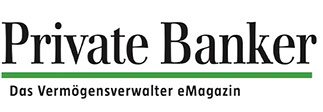

Value Column von Hans Peter Schupp
8 NOVEMBER 2023
High interest rates favor value investments
For decades, the following formula applied: The money market is determined by the central bank and the bond market is a consequence of supply and demand. Based on the yield curve the economic forecasts could then be derived.
Central bank „manipulates“ the bond market
Due to the buyback programs – initially only for government bonds and later also for corporate
bonds – this was suddenly no longer the case, when the European Central Bank (ECB) started to no longer only determine the money market – which is its primary task – but now also steered the bond market, one could almost say „manipulated“ it. However, these buyback programs are now coming to an end and this has consequences. Theoretically, the capital market interest rate is determined by the money held plus a premium for later use for consumption. There is also a counterparty risk that must be taken into account. This is because the central bank’s interventions in the bond market have kept the capital market interest rate artificially low.
So let’s go back to the essence of interest rates, „inflation“. Long-term inflation-linked bonds are currently pricing in a price increase of only around 2.4 percent. Is that realistic? In the short term, base effects, which are declining, will help in the current scenario. And the weak economy will also have an anti-inflationary effect. In the medium term, however, the labor shortage will fuel the incipient wage-price spiral. In addition, demographics – the baby boomers are retiring – will boost inflation. And don’t forget about the risks on the energy market, where a potential conflagration in the Middle East could quickly lead to extreme price spikes. In addition, the deflationary effects of the past are coming to an end.
This means that although inflation is falling, interest rates will remain high for quite some time. The ECB made this clear after its latest interest rate decision. ECB President Christine Lagarde was also skeptical about the short-term economic development in the Eurozone.
Interest rates will remain high for a while – this favors value investments
Interest rates will remain elevated. What does this mean for value investors like ourselves or for the Fidecum Contrarian Value Euroland Fund? For years, market participants have only been confronted with falling interest rates. Accordingly, the value segment has underperformed since 2007. Now, however, we find ourselves in an environment of high interest rates. And that favors our value style. Given the still high valuations of many growth stocks, these new conditions lead to the risk of a further significant downside, as we have already experienced in the past year or two. In many cases, investors are therefore paying too much for these stocks.
As value investors, however, we can say the following about the stocks in our portfolio: despite all the uncertainty that we always have to face in the capital markets, our stocks have a better predictability of cash flows. This generates a level of security for us as investors that should not be underestimated.
Many growth companies are not in a position to earn these cash flows. Or the business model still has to be structured through marketing expenditure and other investments in such a way that there are less profits left for the shareholder in the end.
The Fidecum Contrarian Value Euroland Funds PER is a moderate 5 to 6
We are taking the opposite approach, as the historical alpha of value in phases of high inflation and high interest rates is more than 6%. In addition to financial stocks, industrial, energy and commodity stocks benefit particularly from an environment of rising interest rates. And exactly those stocks can currently be found in the Fidecum Contrarian Value Euroland Fund, such as Deutsche Bank, Aegon, Renault and Bertrandt. The historical average valuation for value stocks may also point to a potential outperformance. And finally, despite the recent catch up – rally , the value segment is still cheaply valued, with a healthy balance between earnings growth, price increases and valuation. Incidentally, the average P/E ratio of all stocks in our fund is a moderate 5 to 6.
Translation for convenience only!
The author: Hans Peter Schupp is a board member of FIDECUM AG and portfolio manager of the Contrarian Value Euroland fund.

